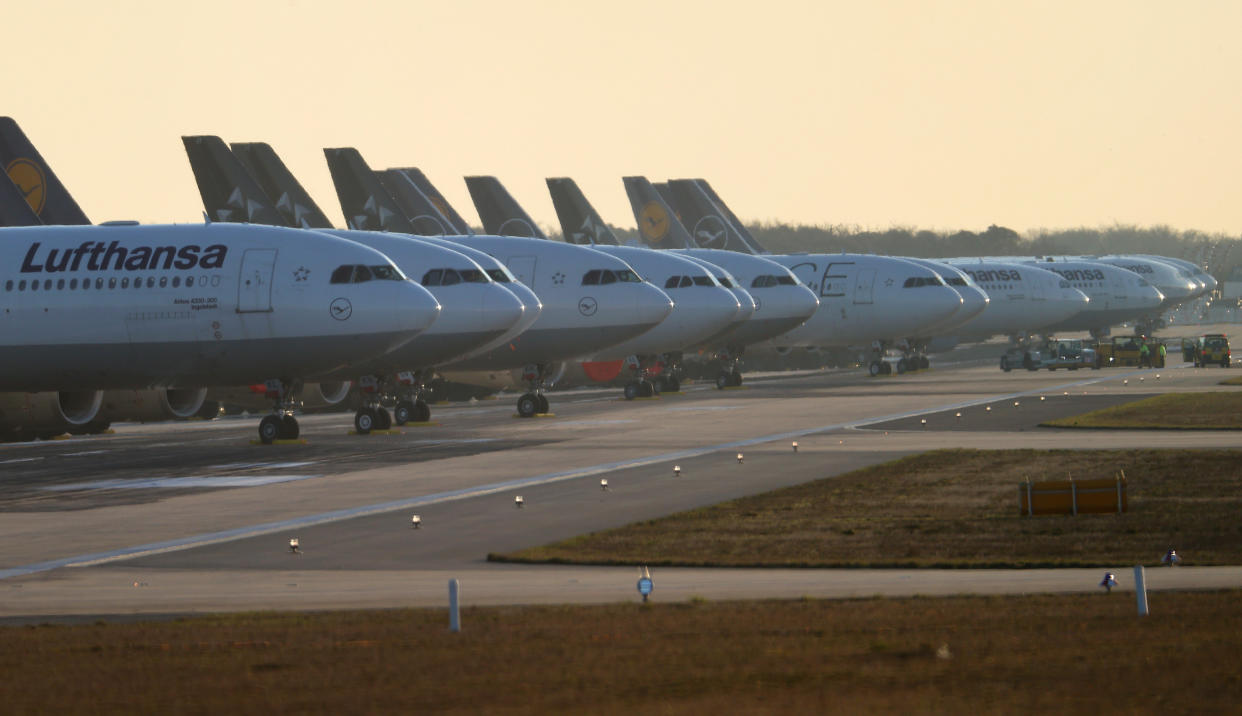Coronavirus: Lufthansa to put 87,000 staff on part-time hours

German flag carrier Lufthansa (LHA.DE) has put around two-thirds of its global workforce, some 87,000 staff, on reduced hours as the coronavirus pandemic takes its toll on the aviation sector.
The Lufthansa Group, which includes Swiss Air, Austrian, and EuroWings, confirmed the move, first reported by Business Insider. It had around 138,000 staff as of 2019.
However, like its competitors, Lufthansa has slashed flight schedules to almost nothing in the past two weeks, as country-by-country travel bans took hold and people were urged, or ordered, to return to their homes and stay inside.
EasyJet (EZJ.L) has grounded its entire fleet, and sent cabin crew home for a two-month leave of absence. Ryanair (RYA.L) will ground 90% of flights, and British Airways (IAG.L) said this week it will ground all flights from Gatwick airport, cutting its global flight plan by 75% in the next two months.
Read more: British Airways expected to furlough 36,000 staff
Airports across Germany are empty, seeing just a handful of flights per day. Lufthansa has been leading the German government’s €50m (£44m, $55m) mission to bring home thousands of Germans, mainly tourists, stranded abroad.
This week, German foreign minister Heiko Maas said that around 187,000 out of 200,000 had already been flown home. The majority of those still stuck abroad are in New Zealand, and may now be brought back to Germany after the New Zealand government today lifted its flight ban.
Lufthansa’s chief executive, Carsten Spohr, warned during the company’s earnings call on 19 March that the pandemic has plunged the global economy into “an unprecedented state of emergency.”
“The longer this crisis lasts, the more likely it is that the future of aviation cannot be guaranteed without state aid,” Spohr said.
The aviation industry association IATA has said that “on average, airlines can survive this crisis for two months.”
The German government this month approved a €750bn package of financial support measures, including €400bn in loans to companies through the kFW state bank.
Read more: Germany bids goodbye to ‘black zero’ with €750bn coronavirus package
Spohr also told the Bild newspaper in an interview that his airline stood poised to fly in supplies to Germany if necessary to make sure supply chains did not entirely collapse.


